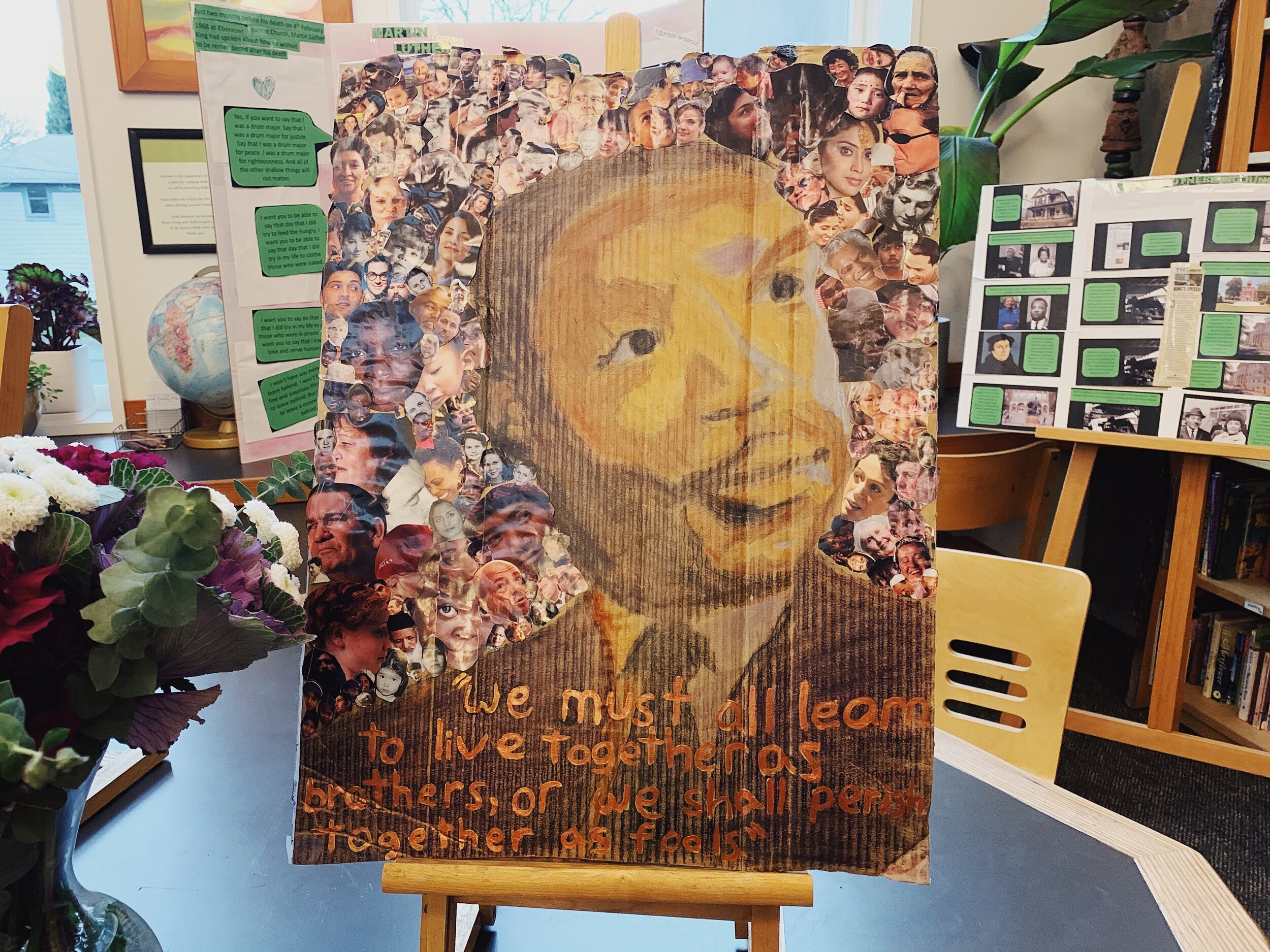The beginning of the school year is always a time for remembering and rebuilding healthy school rhythms and routines.
Read MoreWriting helps students grapple with, understand, and remember complex concepts in a wide range of academic subjects.
Read MoreAs artificial intelligence creates economic disruption, what skills will students need to be successful in the future?
Being able to see the big picture and do complex systems thinking. Emotional intelligence, including empathy and intuition. The ability to dream up creative new ideas. The ability to build, test, and refine your ideas. And most importantly, the ability to learn new things and adapt to new situations.
Read MoreChildren learn in many different ways. That’s why it is so important for teachers to bring concepts through multiple senses. At Cedarwood, we teach science through stories, as well as outdoors in nature and in the lab. We move, build, and even bake & eat our math. We teach literature through theater. We sing our history and languages.
Read MoreOne of the best scientific predictors for how a child turns out, in terms of happiness, academic success, and meaningful relationships, is whether adults in their life consistently show up for them. Our teachers strive to see and recognize each of their students, greeting them each morning individually, and working with them over multiple years to build on their unique strengths and meet their individual challenges so that they can thrive.
Read MoreFinal performances of the 2020-21 school year from grades 4-8!
Read MoreThis special tradition at Cedarwood is a way for rising first graders to summon the courage and strength they’ve been building in kindergarten and cross over the bridge into the elementary school.
Read MoreOur incredible team of subject teachers and student ambassadors share what school is like when the whole child is engaged each day, head, heart & hands!
Read MoreCedarwood’s Pedagogical Director, Chiaki Uchiyama, provides an in-depth look at how Waldorf education serves not just our children, but all of humanity.
Read MoreWe checked in with teachers, staff, parents & students to see how the past year of learning, connecting and growing together at Cedarwood has gone!
Read MoreNow that we are almost to a full year of distance learning — and halfway through our 2020-21 school year of Connected Learning 2.0 — we thought we’d check in with a few teachers throughout the school and see how things are going!
Read MoreCedarwood started offering optional virtual clubs on Fridays for students in the grades this fall. This month, we’re excited to share a little bit about our Spanish and Japanese Clubs!
Read MoreMany of our classes at Cedarwood have been working on singing and playing new songs in honor of Martin Luther King, Jr. Day and Black History Month.
Read MoreCedarwood is very pleased to announce that Donna Blaser will be our grade one class teacher next year.
Read MoreCedarwood started offering optional virtual clubs on Fridays for students in the grades this fall. We’re excited to share a little bit about these new clubs with you, starting with our Social Justice and Service Clubs!
Read MoreIn an effort to give caregivers more tools to keep children moving through the winter, our Movement teacher, Heather Pearl, has put together a list of equipment to inspire active play at home!
Read MoreMany of our younger students are getting a deeper, earlier internet experience than in previous years; parents and teachers alike want them to be as safe and prepared as possible.
Read MoreA multi-sensory treasure hunt.
Read MoreSuddenly, we have become completely reliant on screens and computer technology in order to work, express our thoughts and feelings, and to make our connections with others. This directly challenges the sphere of education in general, but specifically Waldorf schools worldwide, as our pedagogy is based on in-person relationships, with each other and with nature.
Read MoreWorld languages are vital to fulfilling the mission of Waldorf education: to educate children to reach their full potential as human beings who have the capacity to freely choose empathy and peace.
By design, Waldorf schools offer two world languages starting in Grade One. This fundamental part of the curriculum is instrumental in developing the flexibility of thinking and feeling necessary for truly empathetic communication.
Read More



















